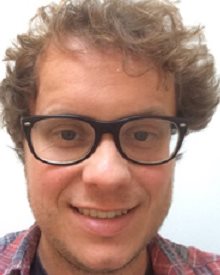Wouter Peeters

I am a Lecturer in Global Ethics in the Department of Philosophy. My research and teaching focuses mainly on climate change, environmental sustainability, and social justice. However, from the personal perspective of my queer identity, I am also interested in recognition theory and intersubjective ethics.
Indeed, I identify as queer. The term has had different meanings and interpretations. Sometimes, it is used as a somewhat vague umbrella term to describe non-heteronormative sexualities and gender identities. Queer in this broad interpretation actually fits well for me: I like the freedom and flexibility this brings; defining my own sexuality and gender identity in a hyper-specific way would be too limiting for me.
Queer is also used more narrowly to describe the subversive, political activist wing of the LGBTQIA+ community which fights against oppressive norms. In many parts of the world, LGBTQIA+ people still suffer deprivation and discrimination, and contesting this is an ongoing battle. Moreover, my ideal for society is not just formal equality and toleration: even though LGBTQIA+ people are much more accepted in the UK and Western Europe, we can and should be more ambitious. The goal should be a fully inclusive society which fosters and celebrates diversity, and this goes far beyond being tolerated or accepted. I admit that I would like to be more politically active on this front, but I am trying to do my best wherever I can.
There is yet another meaning of Queer. In the past, the term has often been used in a derogative way against LGBTQIA+ people. But I’m actually more than happy to reclaim its original meaning as strange, odd, peculiar.
LGBTQIA+ people, especially young people, suffer more from mental health issues and report overall lower wellbeing. In part this is due to remaining discrimination and stigmatization, but another important reason is that we can’t simply rely on prevailing norms and traditions to shape and structure our lives, but rather have to figure it out ourselves. Know that you’re not alone in this struggle, there are other people like you who have faced or are facing similar obstacles.
My small piece of specific advice in this context would be to not let yourself be rushed into some identity or other that you then have to keep for the rest of your life. It has been a bit of a journey for myself identify as queer, to which I arrived only a few years ago. I have self-identified differently at different stages of my life, and my queerness may not be my final identity for the rest of my life either. But I have come to terms with all of this: people change and evolve throughout their life, so there is no reason to assume that a self-identity is static. If it is for you, then of course that’s fine as well, but I believe that for many of us, the personal quest to figure out who we exactly are is never really over. It’s a challenging quest, but it is also an interesting journey, which can enrich your life immensely. So try to embrace it and be kind to yourself!